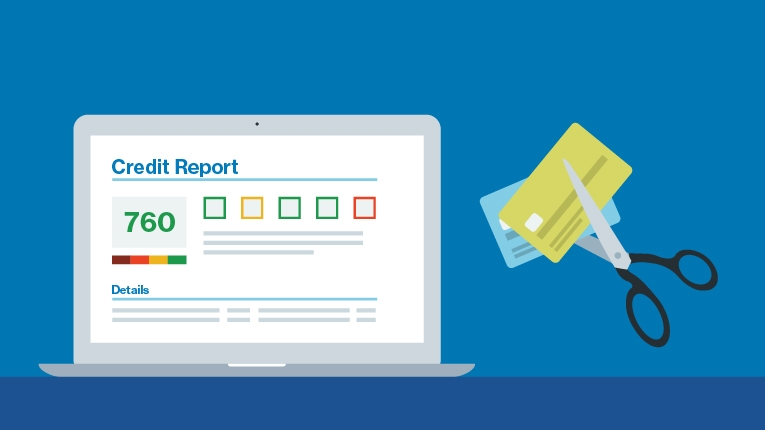What Is an unsecured personal loan?

An unsecured personal loan is a loan that doesn't require you to put up any form of collateral—like a car, personal savings, or house. Unsecured loans often provide quicker access to cash than secured loans. However, unsecured loans are considered greater risk by lenders, and may have higher interest rates or lower borrowing limits. Creditworthiness plays a big factor in both eligibility and interest rates for unsecured loans.
How unsecured personal loans compare to secured personal loans
Both unsecured and secured personal loans are very common and the differences come down to several key factors:
Faster payouts
The speed will often depend on who is lending you money: online lenders tend to process loans the quickest, while banks and credit unions tend to have longer processing times. Because they don't require collateral documentation, like car titles or home deeds, unsecured loans tend to grant faster payouts. This can be as soon as the day you apply, with an average of three business days.
No risk of losing property
As you are not required to put up any collateral—like your home, car, or savings—unsecured loans pose no risk of losing your property in the event of nonpayment. However, there are still consequences, such as damage to your credit score and the possibility of being sued if you miss payments or default on your loan.
Higher rates
Typically, unsecured loans will have higher interest rates than secured loans, but the exact amount varies greatly based on your creditworthiness. Generally speaking, the higher your credit score, the lower your interest rate, and individuals with fair or bad credit (FICO scores at 669 or lower) may face higher rates or difficulty getting an unsecured loan.
Loan restrictions
An unsecured personal loan can be used for almost any reason, like making home improvements, paying off accumulated medical bills, or consolidating credit card debt. However, be sure to check the terms of a loan so you understand any limits before you sign.
Types of lenders that offer unsecured personal loans
Unsecured loans can be obtained through traditional lending institutions as well as several other alternative lenders.
Online lenders
Online lenders tend to have a faster approval process and often offer more competitive interest rates than a traditional bank with lots of locations. Though there are no physical branches or agents you can speak to in person, many offer online chat, text messaging, and live phone support.
Traditional banks
Traditional brick-and-mortar banks offer unsecured loans, but they may carry more stringent credit requirements and higher interest rates. Some banks may offer better rates and higher loan amounts to established customers who have an account and an established credit history with them, but this isn’t always consistent or guaranteed. Even if they do claim to give you their best rate options, it’s important to shop around before committing to an offer.
Credit unions
Credit Unions are not-for-profit financial institutions that are member-owned and run. They typically offer many of the same lending options as traditional banks—including unsecured personal loans—at lower rates, especially if you’ve been with that credit union for a while. If you're looking for a fast loan, it's important to consider that the application process with banks and credit unions may take from one day to a few weeks. Explore all your options to find the best fit for your needs
Peer-to-peer lenders
Peer-to-peer lenders are financial platforms that connect individual borrowers directly with individual lenders (or groups of individuals). When evaluating this type of lender, pay attention to fees and eligibility criteria. Peer-to-peer lenders tend to offer borrowers lower interest rates than compared to traditional financial institutions, but may have additional costs.
How do lenders determine interest rates on unsecured personal loans?
Interest rates for personal loans can vary which can mean a difference in loan costs. In most cases, the interest rate is determined based on the eligibility factors of the borrower, so it's important to understand how lenders evaluate borrower risk.
Credit score and history
Unsecured loans can be riskier for lenders—without collateral to back the agreement, in the event of nonpayment, they’re responsible for sending the unpaid amount to collections or file a lawsuit to collect the money owed, which can take time and effort. Because of this, your credit profile plays a large factor in the interest rate you receive. Individuals with excellent credit (740 and higher) typically receive the best interest rates and terms.
Debt-to-income ratio
This ratio shows a borrower’s ability to manage repayment. It’s calculated by taking all your monthly debt payments and dividing by your gross monthly income. The lower your debt-to-income ratio the better. Typically, staying at or below 36% is ideal.
Income and employment history
A stable employment history gives lenders confidence that you have the means to repay the loan. In most cases, they’ll want to know your annual salary and may ask to see pay stubs to show you earn steady income.
How to get the best rate on an unsecured personal loan
Taking steps now to improve your finances can help you secure a better interest rate if you need one.
Improve your credit.
Credit scores are one of the most important factors in determining loan interest rates. In general, the higher your score, the lower your rate. So, if you’re able to improve your credit score before applying for a personal loan, the lower rates can save you money.
The best starting point is to pay off any overdue bills and reduce existing debt to at least 30% of your limit on all your loan balances. Request a credit report and check it for any errors. If you do find any, report them immediately.
If you’ve opened multiple credit cards in a short period of time, wait until some of the inquiries clear off your account. It generally takes 18-24 months from the time an account is opened for the credit inquiry to clear.
Find a co-borrower.
Having a friend or family member with a good credit history apply with you as a co-borrower might help improve your chances of loan approval with a lower interest rate. Be sure to understand the responsibilities and potential risks involved for both parties.
Unlike with a co-signer, where the friend or family member acts as a guarantor and agrees to pay the loan in a scenario where you default, a co-borrower shares equal obligations for repayment and rights to the loan amount. If you’re comfortable sharing both the debt and the funds, a joint personal loan with a co-borrower might be a good choice.
Get quotes from multiple lenders.
Like all things in life, shopping around is the best way to find the best loan options available. By comparing quotes from multiple lenders, you’ll be able to find the best interest rate available to you. LendingClub, for example, allows you to check your loan rate without impacting your credit score.
Important factors to consider in an unsecured personal loan (and lender)
When it comes to personal loans, all lenders are not equal. Recognizing what to look for outside of interest rate will help you to avoid signing on the dotted line with a potentially iffy institution.
Customer ratings and reviews
If you're considering working with a lending institution for the first time, check with consumer protection agencies and third-party review sites to learn what their customers have to say first. Online resources like the Better Business Bureau, the Consumer Financial Protection Bureau, TrustPilot, and Google all allow you to quickly search past complaints, star ratings, and customer reviews.
Exorbitantly high interest rates
If you are being denied loans from reputable lenders and desperately need the funds, you might be tempted to resort to your only available options. The reality is many lenders who offer rates to those with bad credit do so in a predatory manner, sometimes charging near 400% for short-term loans. This is particularly true among payday lenders, so weigh your options before committing.
If you find yourself in a dire financial situation with limited options, don't turn to the first lender who offers you money. Nonprofit and government organizations such as the National Federation for Credit Counseling have experts on staff who can help you develop a smart repayment plan.
Prepayment penalties or fees
In addition to rates, consider the fees that often come with personal loans. Many lenders have origination fees—fees you pay at the beginning for processing a loan, of 1% to 8%—that help cover platform costs; and late fees—which are common and expected should repayment not be made on time.
Many may also have prepayment penalties or exit fees, which occur when you repay the amount owed before the loan term is finished. Because the total amount you owe may be tied to how long it takes for repayment, look for lenders who don’t charge prepayment penalties.
Unsecured personal loan FAQ
If this is the first time you’ve considered an unsecured personal loan, you might have some questions.
What’s the difference between a secured vs. unsecured loan?
Secured loans are protected by an asset, like a home, car, or other personal property, that’s used as collateral in the event of nonrepayment. It means you’re providing security to your lender that your loan will be repaid. If the lender is not repaid, they have the right to sell your collateral to pay off the loan.
In most cases, secured loans allow for higher borrowing limits, longer repayment terms, and lower interest rates. In contrast, unsecured loans don’t require collateral, which means lenders carry more of the risk and, therefore, tend to have stricter credit or eligibility requirements, and interest rates may be higher (depending on your credit history). In the case of nonrepayment, the lender can send the amount to a collections agency or sue in civil court, though the latter tends to be less common.
Are unsecured loans safe?
If they come from a reputable lender, unsecured loans are safe especially if you make your payments on time. The main risks have to do with your ability to repay the loan. Failure to repay or make on-time payments can cause your credit score will drop, which can impede your ability to qualify for credit in the future.
How do I qualify for an unsecured personal loan?
You must be 18 years old to qualify for an unsecured personal loan and be able to prove US citizenship. Lenders also look for a steady income, a low debt-to-income ratio and a good credit score. While the median FICO credit score range is 670 to 739, the higher your credit score, the more likely lenders will offer you better loan terms and interest rates.
The bottom line
Almost all individuals and businesses at some point need a loan to grow for the future, and millions of Americans do so safely and productively. But like with any financial product, never make a decision without researching. Once you understand what unsecured personal loans are, how they compare to other loan options, and what factors make for good interest rates and lenders, then you can confidently proceed in taking out a loan option that's best for you.
Consider LendingClub when comparing your options
With over 3 million members served since 2007, LendingClub is the nation’s largest online lending marketplace and offers access to credit with flexible amounts up to $40,000, lower interest rates, no pre-payment penalties, and fast funding. We treat our members the way we’d want to be treated with clear terms, fixed rates, and repayment plans that our members can actually afford.




